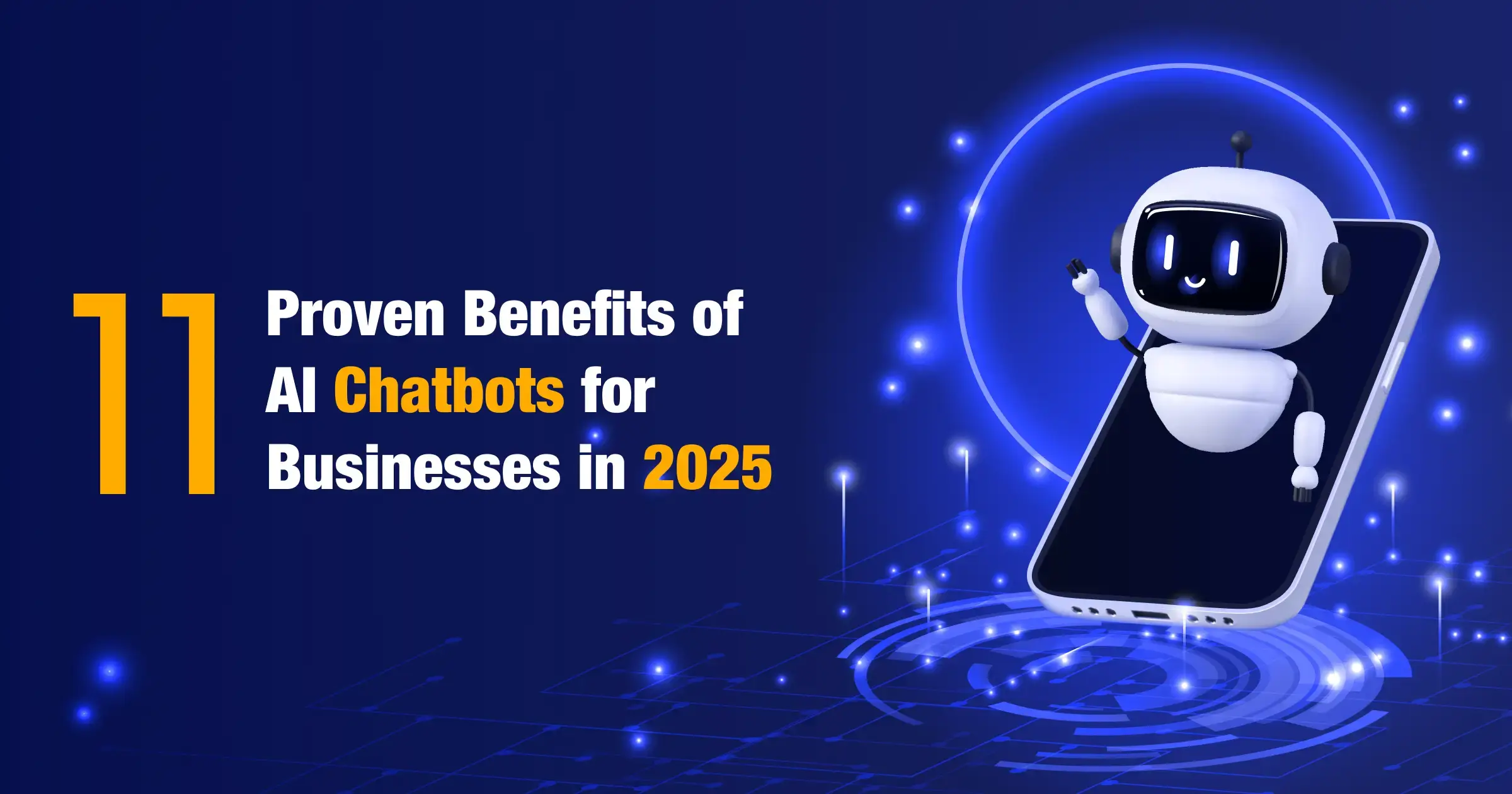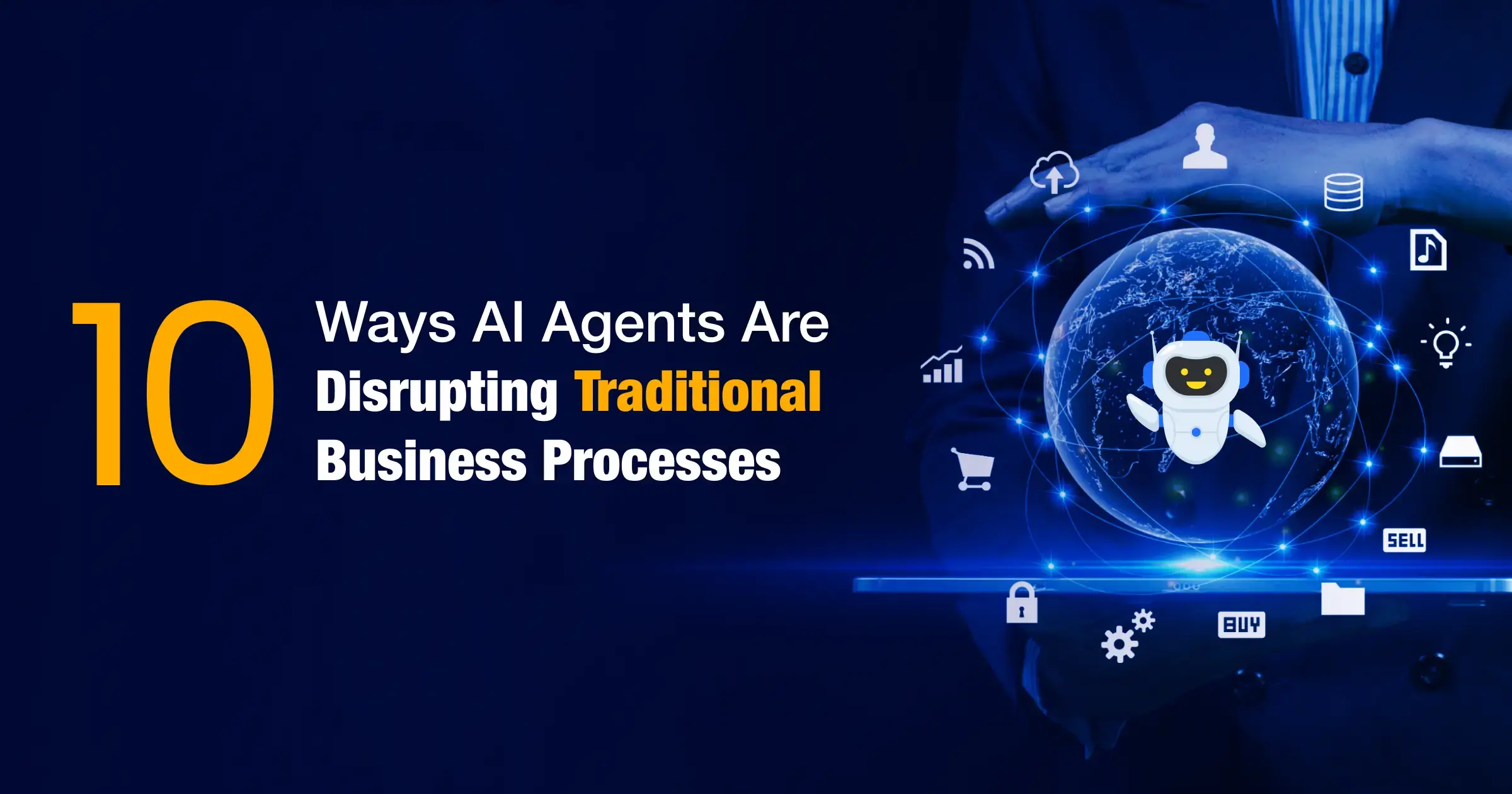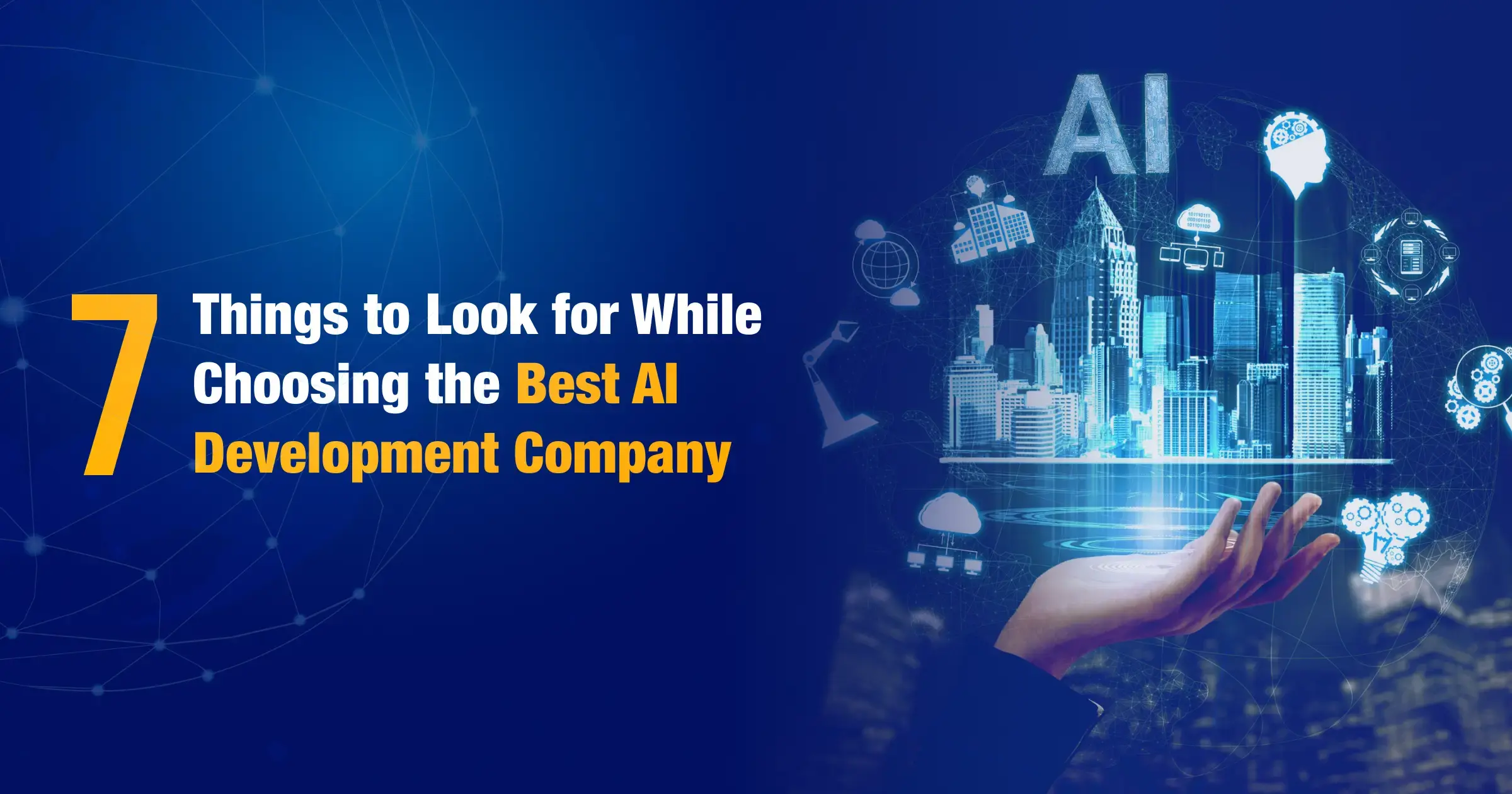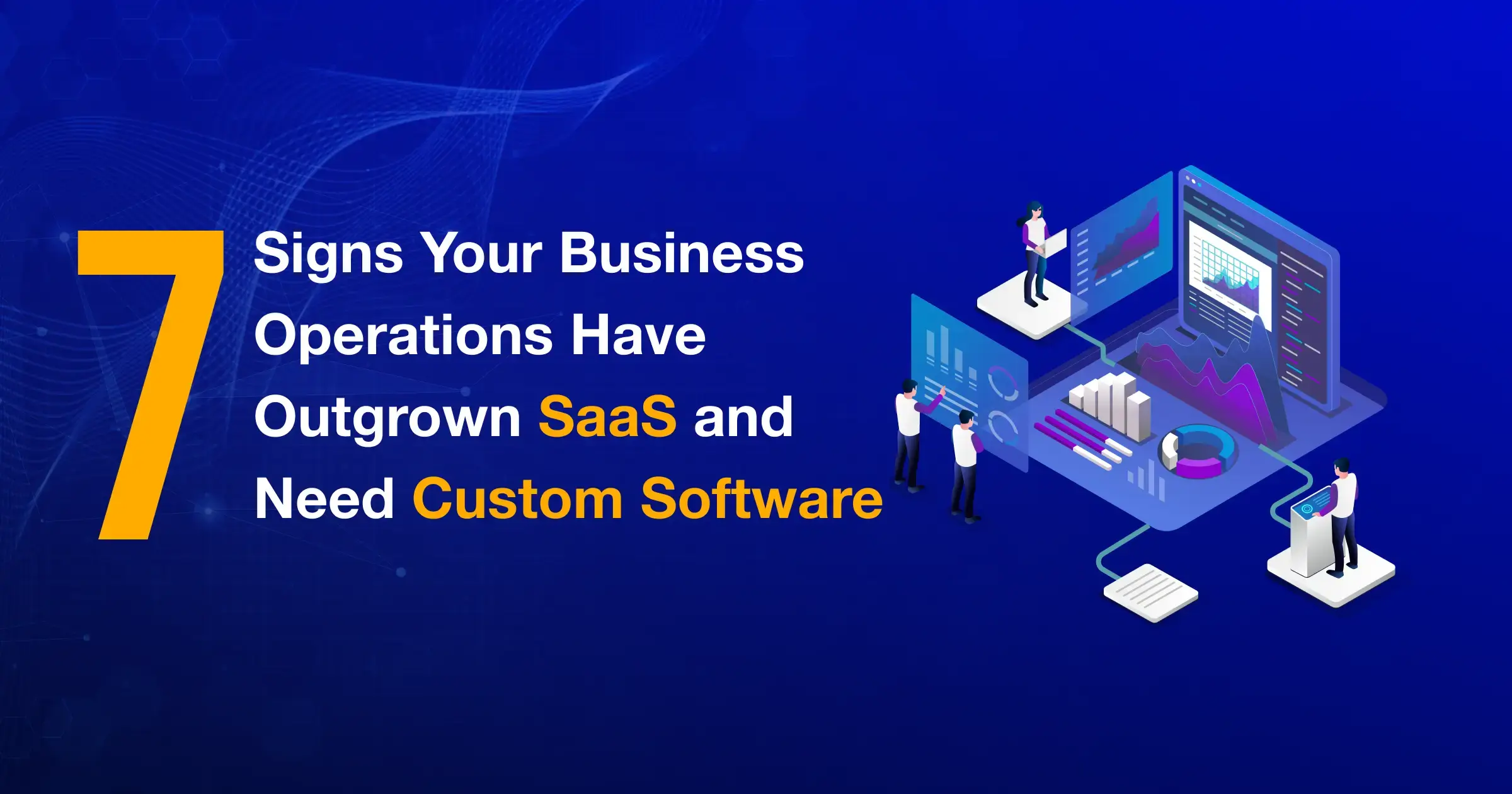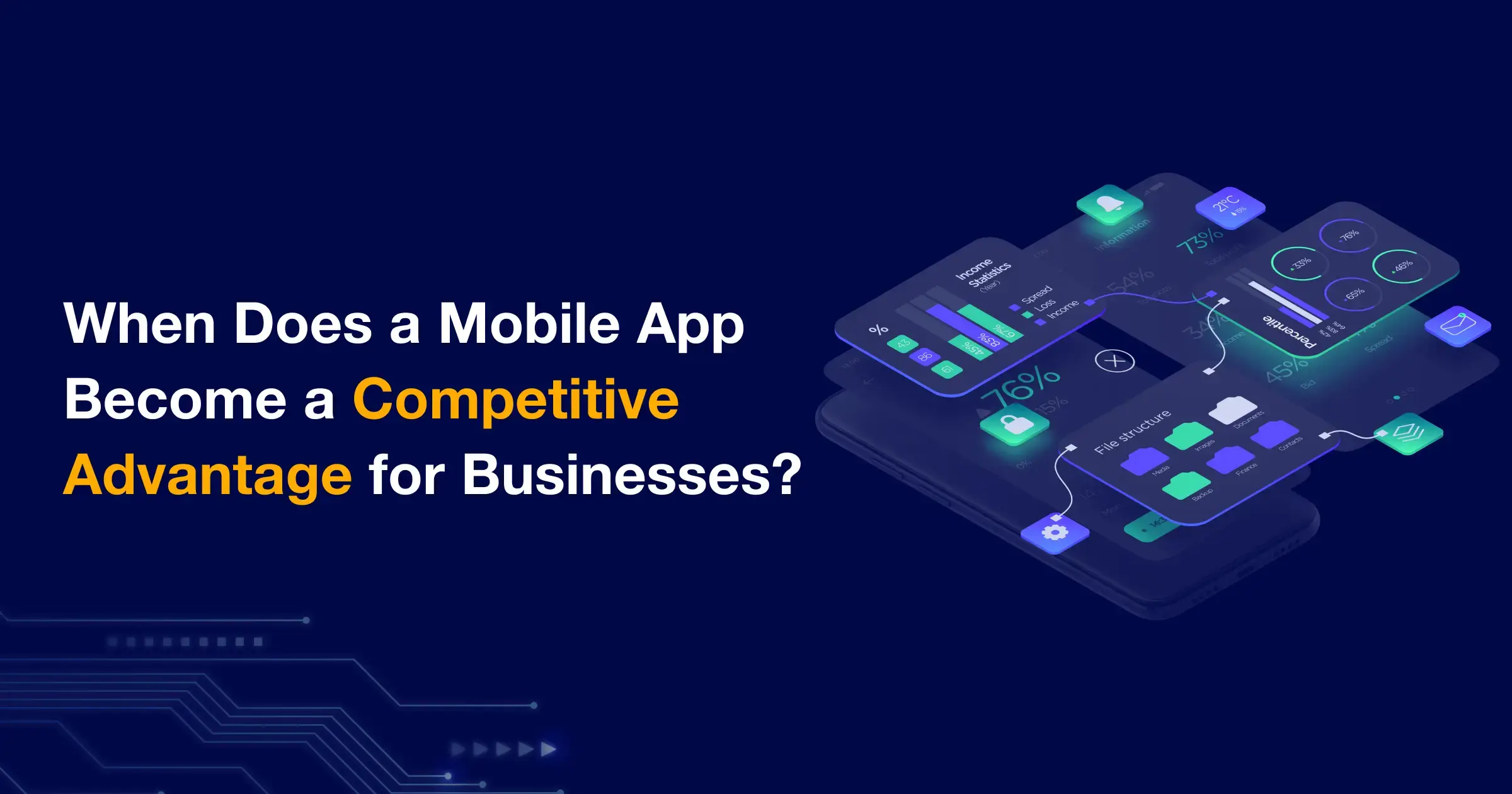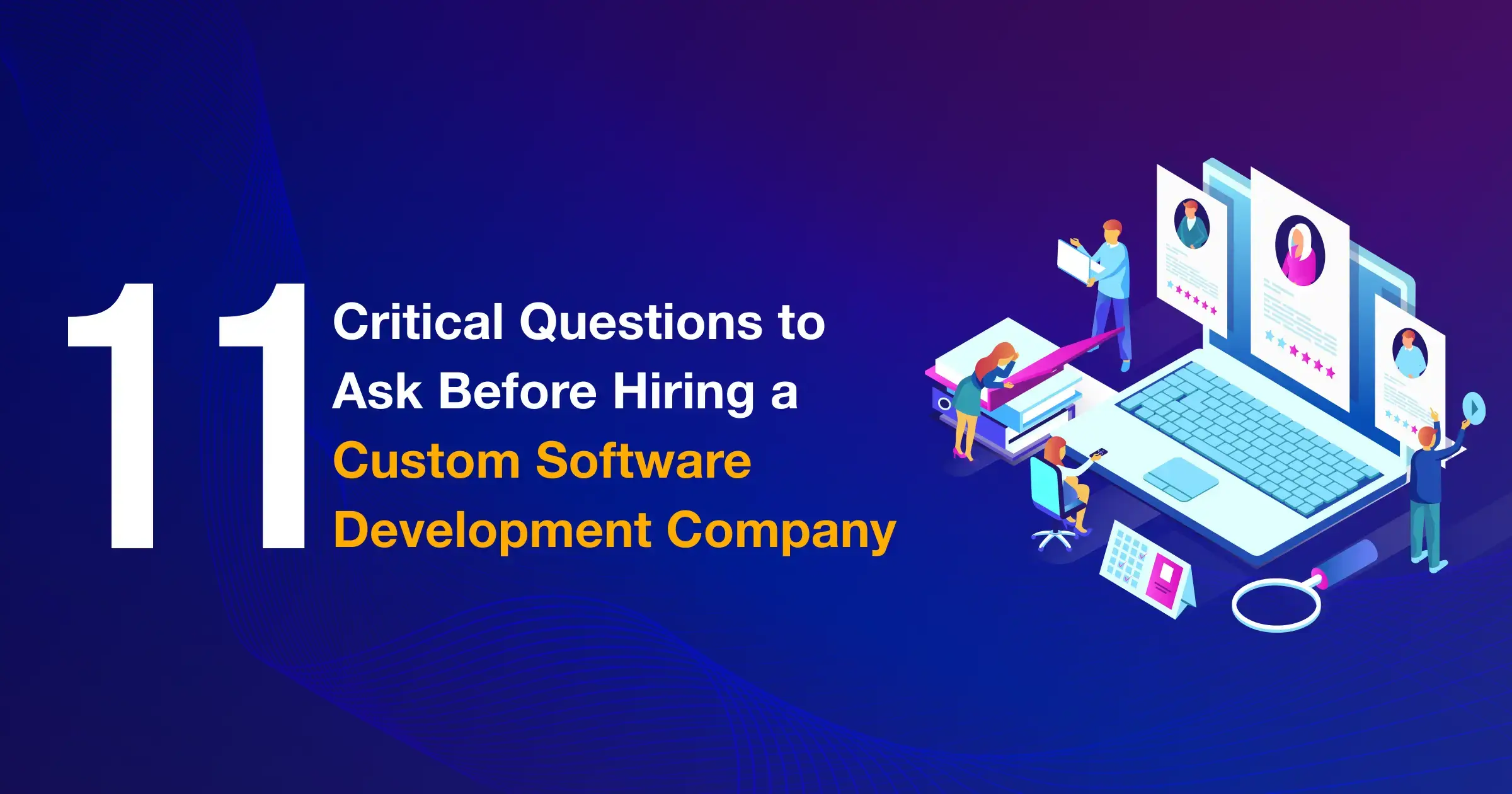
AI chatbots make things easier for businesses as they save time and bring down support costs considerably. They enable users to get assistance anytime they need it, making businesses more reachable to users. With AI chatbots, organizations can scale their teams, collect data efficiently, provide enhanced assistance, and ultimately improve customer experience.
Overview
AI chatbots are typically smart tools that help businesses connect with people in a meaningful way. Besides answering questions and solving problems faced by users in real time, these intelligent bots, powered by artificial intelligence, understand human language using natural language processing (NLP) and learn as they go. The more they chat, the better they get at helping.
In 2025, they’ve become a regular part of doing business. You might have already found them on websites, in different mobile apps, and even in everyday tools like WhatsApp or Instagram. When someone has a question, they suddenly pop up and help customers get the right support they need. And they do it all in just a few seconds, without human intervention.
What makes them really useful is that they don’t stop working and continue to assist users 24/7, without any breaks. What it means is that businesses can stay available to customers at any time, and importantly, you don’t have to build a massive support team to achieve this level of efficiency. Neither do you need to worry about missing a lead when your team is offline.
According to an Uberall study, over 80% of consumers perceive their chatbot experience as positive. That number will surely keep growing every year with advanced tech, like large language models (LLMs), powering chatbot development to make them highly independent and reasonable. And it’s easy to see why. Customers instant, meaningful assistance. Businesses want to cut costs. Chatbots help with both.
Many companies already use chatbots to improve their sales and service. They typically help collect feedback, send reminders, and even suggest products to users based on what they like. A fascinating fact is that all of this happens without making customers wait or feel ignored.
What we will cover in this blog as we go is 11 proven ways AI chatbots help businesses in 2025 across industries grow. Let’s dive in.
Here are the 11 Benefits of AI Chatbot for Businesses in 2025
AI chatbots have several advantages for businesses that go beyond customer service. There are many chatbot types, each has its own, unique functionality, be it responding to customer queries, guiding them to navigate products or services, or personalizing their experience based on their previous actions with the help of extensive data analytics. Let’s explore them.
1. Reduced Customer Service Costs
AI chatbots help cut down support costs by handling common customer queries on their own. They reduce the need for large support teams and lower the number of incoming tickets. Businesses can offer support around the clock without spending on extra staff, shifts, or infrastructure.
- Handles repetitive questions with no agent needed
- Reduces call and chat volume for human teams
- Works 24/7 without extra costs
- Helps avoid hiring more customer service staff
AI chatbots reduce customer service costs by handling common questions, deflecting tickets, and working round the clock without the need for more staff.
2. 24/7 Instant Customer Support
Chatbots never log off. They’re available all day, every day, including weekends and holidays. Customers can get help right when they need it, no matter the time. This helps improve the overall service experience and prevents missed opportunities during off-hours.
- Always online, even after business hours
- No wait time for customer queries
- Supports customers in any time zone
- Keeps service available during peak times
Intelligent chatbots offer 24/7 instant customer support. They stay active all the time and help customers without delays, even after business hours or on holidays.
3. Faster Response Time
Speed matters in customer service. Chatbots give instant replies and solve basic issues within seconds. This reduces the time customers spend waiting and leads to faster resolutions. It also helps reduce bounce rates and keeps users engaged.
- Replies instantly to every query
- Speeds up the support process
- Cuts average handling time
- Keeps customers from dropping off
AI chatbots improve response time by giving instant answers and solving simple issues quickly. This keeps users engaged and reduces wait time.
4. Higher Lead Conversion Rates
Chatbots can talk to potential customers in real time. They qualify leads, ask the right questions, and route them to the right team. By starting conversations early, they help turn visitors into paying customers more often.
- Captures leads during website visits
- Qualifies users with smart questions
- Sends warm leads to the sales team
- Boosts conversion with instant engagement
Smart chatbots improve lead conversion by starting conversations early, qualifying users, and sending warm leads to sales teams without delay.
5. Scalable Operations Without Hiring
When business grows, chatbot support grows with it. Chatbots can handle thousands of chats at once. They don’t need breaks and don’t get overwhelmed. This helps you manage high volumes without hiring extra staff or expanding your support team.
- Handles multiple conversations at once
- Supports growing customer base easily
- No extra hiring needed as volume grows
- Keeps performance steady during spikes
AI chatbots support business growth by handling more chats without hiring extra staff. They scale support during peak times without slowing down.
6. Personalized Customer Engagement
Chatbots don’t give one-size-fits-all replies. They use customer data to tailor conversations. This makes users feel seen and heard. They can also suggest products or content based on past behavior or questions.
- Uses name, location, and past chats
- Remembers past interactions
- Offers product suggestions
- Adapts replies to user needs
AI bots create personalized customer engagement by using past data, remembering users, and tailoring replies based on behavior or questions.
7. Improved Customer Retention
Happy customers come back. Chatbots make the service faster, smoother, and more helpful. They help reduce frustration and make sure users feel supported. This leads to better loyalty and fewer lost customers.
- Solves issues before they grow
- Follows up with helpful messages
- Collects feedback in real time
- Keeps users engaged after purchase
AI chatbots improve customer retention by solving problems quickly, following up with support, and making users feel valued throughout the journey.
8. Multilingual & Cross-Platform Support
Chatbots can speak in different languages and work on multiple platforms. Whether it's your website, app, or social media, they stay active. This makes your support more accessible and helps you reach more people.
- Supports multiple languages
- Works across apps, sites, and messengers
- Offers the same experience everywhere
- Helps businesses go global easily
Smart AI bots offer multilingual and cross-platform support, helping businesses serve global customers on websites, apps, and messaging tools.
9. Actionable Customer Insights & Analytics
Chatbots don’t just chat, they collect data. They help businesses understand what customers ask, what they need, and where they face problems. These insights can improve services and products over time.
- Tracks chat trends and behavior
- Highlights common questions and issues
- Connects data to CRM or reports
- Helps improve service and messaging
AI chatbots provide actionable insights by tracking customer behavior, spotting trends, and sharing useful data that helps improve business strategy.
10. Boosted Agent Productivity
Chatbots take care of simple tasks so human agents can focus on tougher ones. This reduces their workload and makes them more effective. It also helps solve complex issues faster and improves team morale.
- Filters out basic or repetitive tickets
- Lets agents focus on high-priority cases
- Reduces stress and task overload
- Speeds up problem-solving for tricky issues
AI chatbots boost agent productivity by handling basic tasks, freeing up time for human teams to solve more complex customer problems.
11. Competitive Advantage in Your Industry
Businesses that use AI chatbots stay ahead. They offer faster service, engage users better, and work more efficiently. Chatbots also help brands build a modern image and keep up with changing customer expectations.
- Responds faster than competitors
- Offers a smoother service experience
- Keeps your brand up to date
- Builds trust through smart automation
AI bots give businesses a competitive advantage by improving speed, service quality, and customer engagement across platforms.
How Traditional Chatbots Differ from AI Chatbots

Traditional chatbots and AI chatbots may sound similar, but the way they work is very different. Traditional ones follow fixed, pre-written rules. On the other hand, AI chatbots think on the go, and leverage advanced technologies such as machine learning, natural language processing (NLP), etc.
The older version uses fixed flows or scripts to respond. AI ones understand questions in real time and respond based on context. So, while both can handle customer support, only one can learn and improve with every chat.
Here’s How a Traditional Chatbot Functions in Real Time
Let’s say a customer messages a telecom company asking, “Why is my internet slow today?”
A traditional chatbot checks for the word “slow” or “internet” and shows a scripted reply like, “Please restart your modem or check your router settings.”
But what if the customer replies, “I’ve already done that, it’s still not working”?
The bot often gets stuck. It either repeats the same answer or gives a generic fallback like, “Please contact support.”
It doesn’t truly understand what the user means. And it can’t adjust based on past responses.
Here’s How an AI Chatbot Functions in Real Time
Now picture the same customer question handled by an AI chatbot.
The customer asks, “Why is my internet slow today?”
The AI bot understands the tone and context. It may ask, “Sorry to hear that. Can you tell me if you’re facing this issue on Wi-Fi or mobile data?”
The conversation flows naturally. If the user says, “Wi-Fi,” the bot may ask for location details or offer to run a remote test.
Even if the user says, “I’ve already tried restarting,” the AI bot remembers that and avoids repeating steps.
It sounds human, stays helpful, and makes the user feel heard.
How AI Chatbots Function
Intelligent, AI-powered chatbots fundamentally differ from traditional ones as we have seen above. Here’s a quick visual representation of its working.

Real-World AI Chatbot Examples that Scaled Success of Brands
AI bots can significantly transform the way businesses function. Here are some real-world examples of how these chatbots played a key role in brands’ success.
Sephora: 11% Increase in Booking Rates with Virtual Assistant
When Sephora rolled out its AI-powered chatbot, it was more than just about answering FAQs. What they wanted was a beauty expert who is available 24/7. That’s when Sephora Virtual Artist came into play. This chatbot helped users book in-store appointments, get product recommendations, and even try on makeup virtually using AR integration.
So, what happened?
Domino’s: 85% Boost in Online Sales Through “Dom” the Chatbot
Meet Dom, the AI chatbot that lets customers order pizza through Facebook Messenger, voice, SMS, or even smart TVs. The best part? You could reorder your last meal by typing just one word: “Dom.”
What did it deliver?
H&M: 86% Higher Conversion Rate with Style-Focused AI Chatbot
H&M launched its chatbot on Kik Messenger to help users find fashion pieces, browse collections, and build outfits based on personal style preferences. Instead of scrolling through endless items, users got instant style suggestions.
What are the real results?
Each of these companies operates in vastly different industries, yet they have outcomes that tell a similar story, which is better business performance, be it customer satisfaction, 24/7 assistance, or optimal resource utilization.
In a Nutshell
AI chatbots are essentially changing how businesses connect with customers by helping people find what they need faster. They keep visitors engaged and give your team more time to focus on what really matters.
What’s more fascinating is that AI keeps getting better with time and chatbots will soon become intelligent, personal assistants, if not already. A smart chatbot today can lead to even bigger wins tomorrow.
FAQs
What is an AI chatbot?
An AI chatbot is a smart tool that talks to users just like a real person. It understands the context of user queries by leveraging natural language processing (NLP), learns from chats, and gives helpful replies in real time.
Are AI chatbots good for lead generation?
Many businesses see significant improvement in leads after implementing smart chatbots. They talk to visitors, qualify leads, send them to the right team, which helps convert more people into buyers.
What makes AI chatbots different from traditional chatbots?
Traditional bots typically follow fixed scripts and don’t “think” when it comes to new scenarios. On the other hand, AI bots understand real questions and give smart, helpful replies – basically they improvise based on the situation.
Is it hard to set up an AI chatbot for my business?
Not at all. It’s rather a simple process, especially if you partner with an expert chatbot development company. There are platforms that offer easy tools or ready-to-use bots, which you can set one up in just a few steps. However, if you want to build a custom chatbot specific to your business, it’s best to hire AI chatbot developers from a reputed artificial intelligence development company offering such services.
Can chatbots really boost sales?
They can. Having trained using machine learning, they recommend products, answering questions fast, guiding users in real time, and much more. Through these efficient task handling, they help drive more conversions and reduce drop-offs.
Can chatbots be used in small businesses?
Yes. Small businesses can benefit just as much as large enterprises. AI chatbots redefine the business landscape and help small businesses and startups function efficiently without additional hiring. They can save costs by allocating their human resources to critical areas of business.
What industries use AI chatbots the most?
AI chatbots are increasingly useful in retail, finance, healthcare, travel, and education among others. Basically, any business that wants to connect with customers better can use them.

